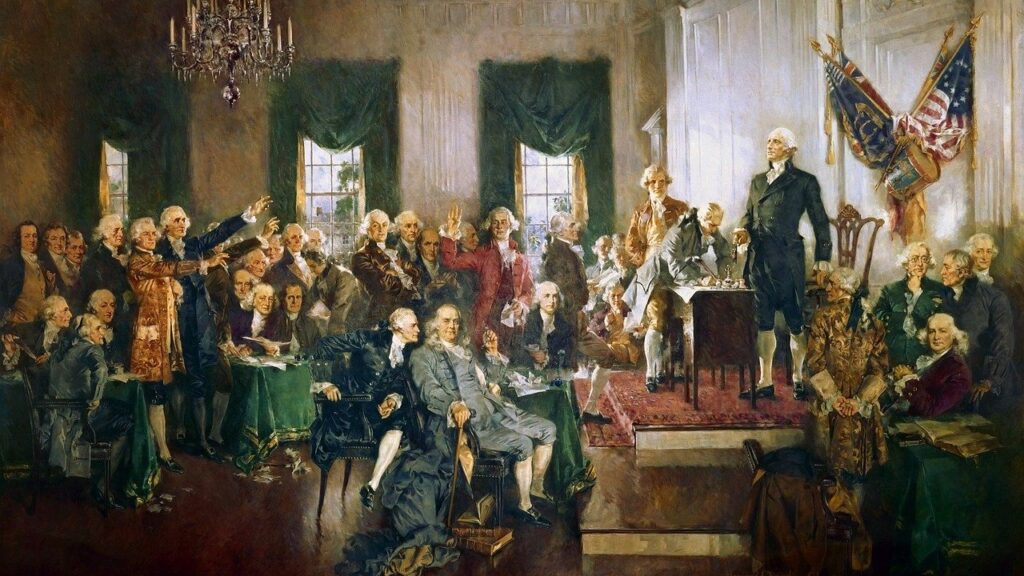by Michael Maharrey, Schiff Gold:

The national debt recently blew past $32 trillion.
As we approach America’s birthday on July 4, it might be a good time to consider what the founding fathers would have thought about this massive indebtedness.
James Madison might have summed it up best when he called a national debt “a national curse.”
TRUTH LIVES on at https://sgtreport.tv/
I go on the principle that a Public Debt is a Public curse and in a Rep. Govt. a greater than in any other.”
The antifederalist writer Brutus made a similar point, writing.
I can scarcely contemplate a greater calamity that could befall this country, than to be loaded with a debt exceeding their ability ever to discharge.”
Thomas Jefferson said he considered “public debt as the greatest of the dangers to be feared,” and he warned that in order to preserve the people’s independence, “we must not let our rulers load us with perpetual debt.”
He also talked about the urgency of paying off debts, saying it would help preserve peace.
It is incumbent on every generation to pay its own debts as it goes. A principle which, if acted on, would save one half the wars of the world”
Jefferson went on to explain just what would happen if we failed to heed his warning.
If we run into such debts as that we must be taxed in our meat and in our drink, in our necessaries & our comforts, in our labors & our amusements, for our callings and our creeds, as the people of England are, our people, like them, must come to labor 16 hours in the 24 give the earnings of 15 of these to the government for their debts and daily expences; and the 16th being insufficient to afford us bread, we must live, as they now do, on oatmeal & potatoes.”
Benjamin Franklin warned that running into debt gives “to another Power over your Liberty.”
Madison shared Franklin’s view, naming debt among a trio of tools that people with power use to establish tyranny.
Armies, and debts, and taxes are the known instruments for bringing the many under the domination of the few.” [Emphasis added]
In his Farewell Address, George Washington urged the country to use debt sparingly and pay it off as quickly as possible.
As a very important source of strength and security, cherish public credit. One method of preserving it is to use it as sparingly as possible, avoiding occasions of expense by cultivating peace, but remembering also that timely disbursements to prepare for danger frequently prevent much greater disbursements to repel it.”
He made a similar point in his Fifth Annual Message to Congress.
No pecuniary consideration is more urgent than the regular redemption and discharge of the public debt. On none can delay be more injurious or an economy of time more valuable.”
Jefferson gave us a blueprint for how to handle the debt.
I am for a government rigorously frugal and simple, applying all the possible savings of the public revenue to the discharge of the national debt and not for a multiplication of officers & salaries merely to make partizans, & for increasing, by every device, the public debt, on the principle of it’s being a public blessing.” [Emphasis added]
For many in the founding generation, loading future generations with debt was morally unacceptable and something that should be rejected. Washington referred to it as “ungenerously throwing upon posterity the burden which we ourselves ought to bear.”



